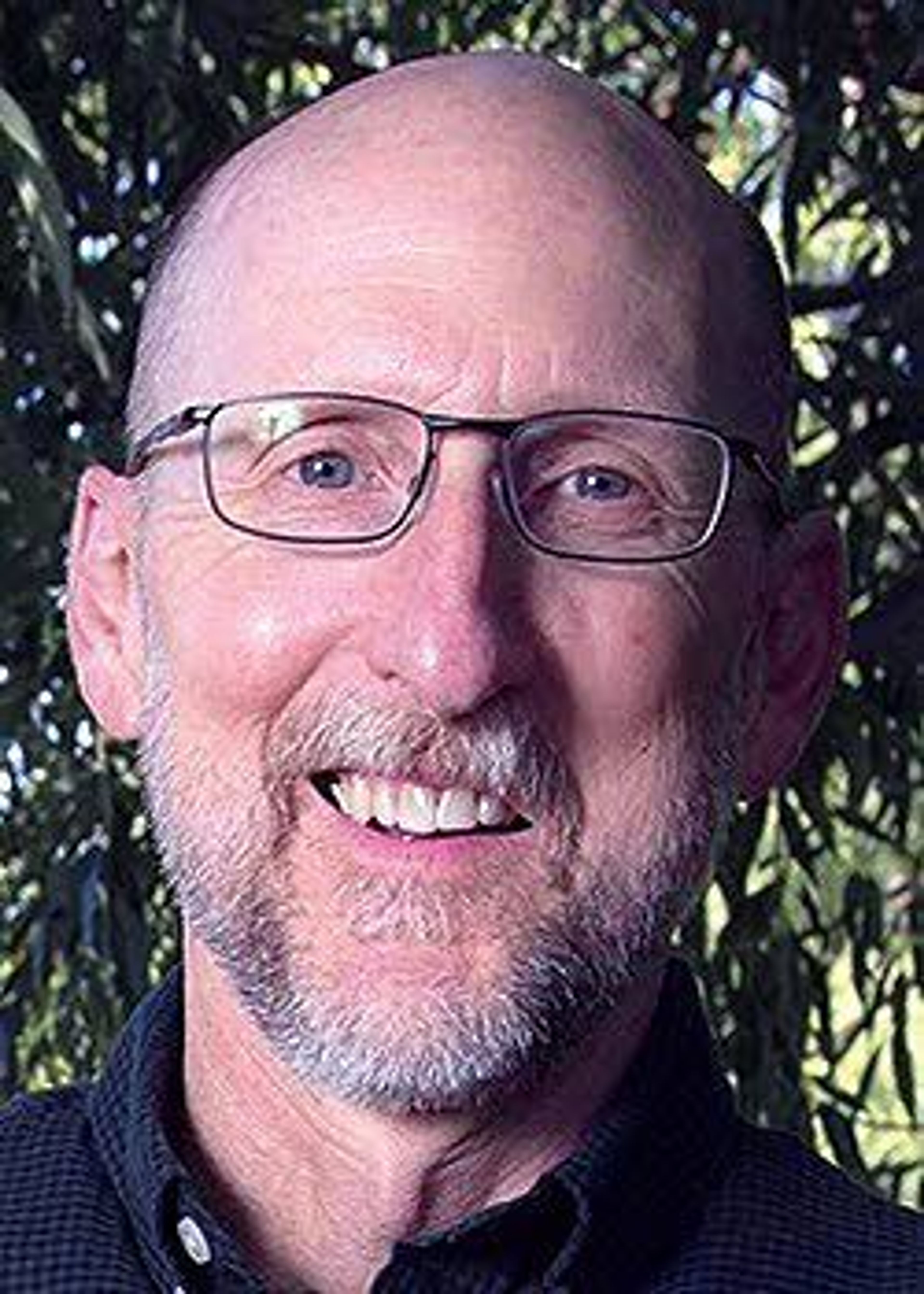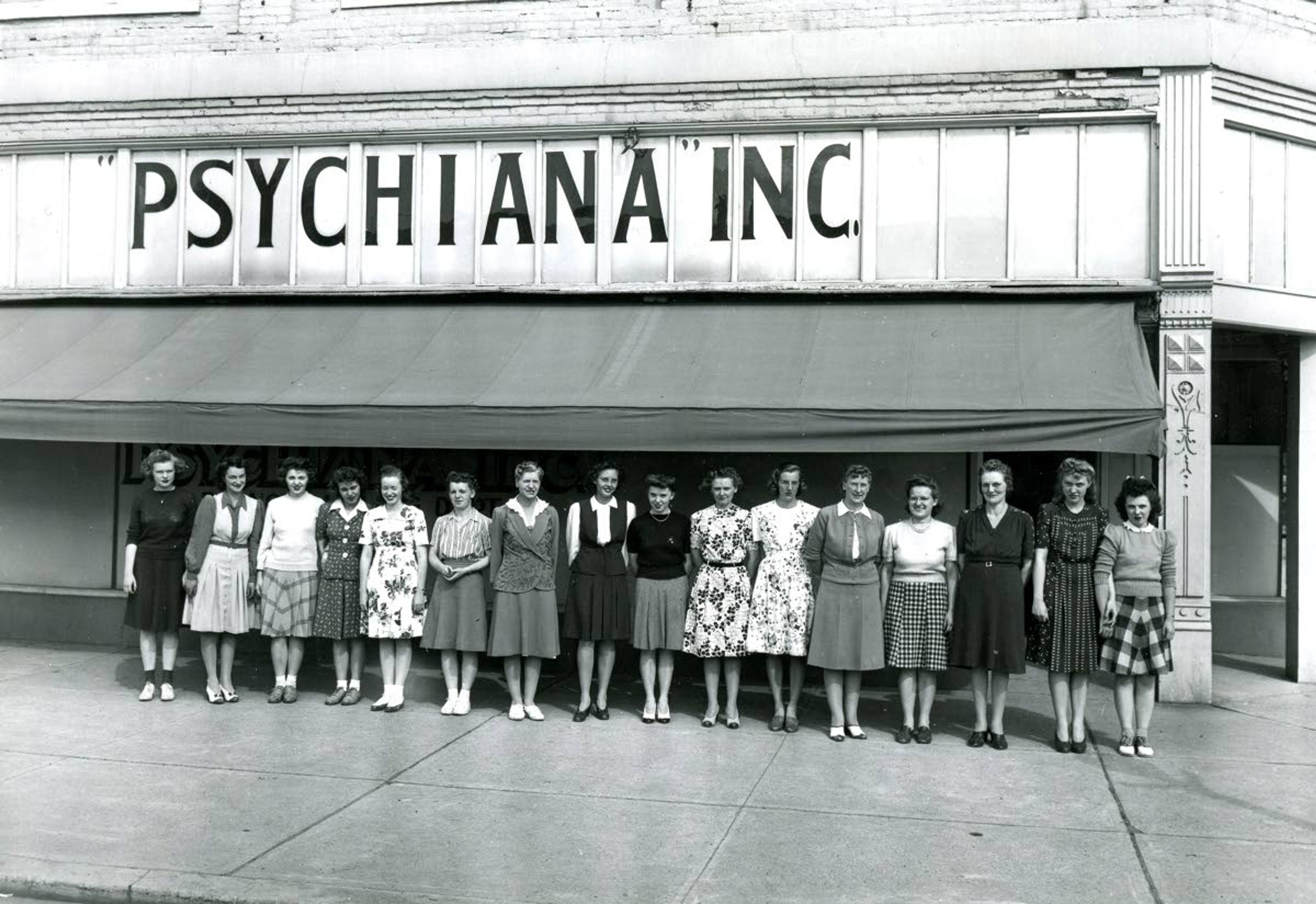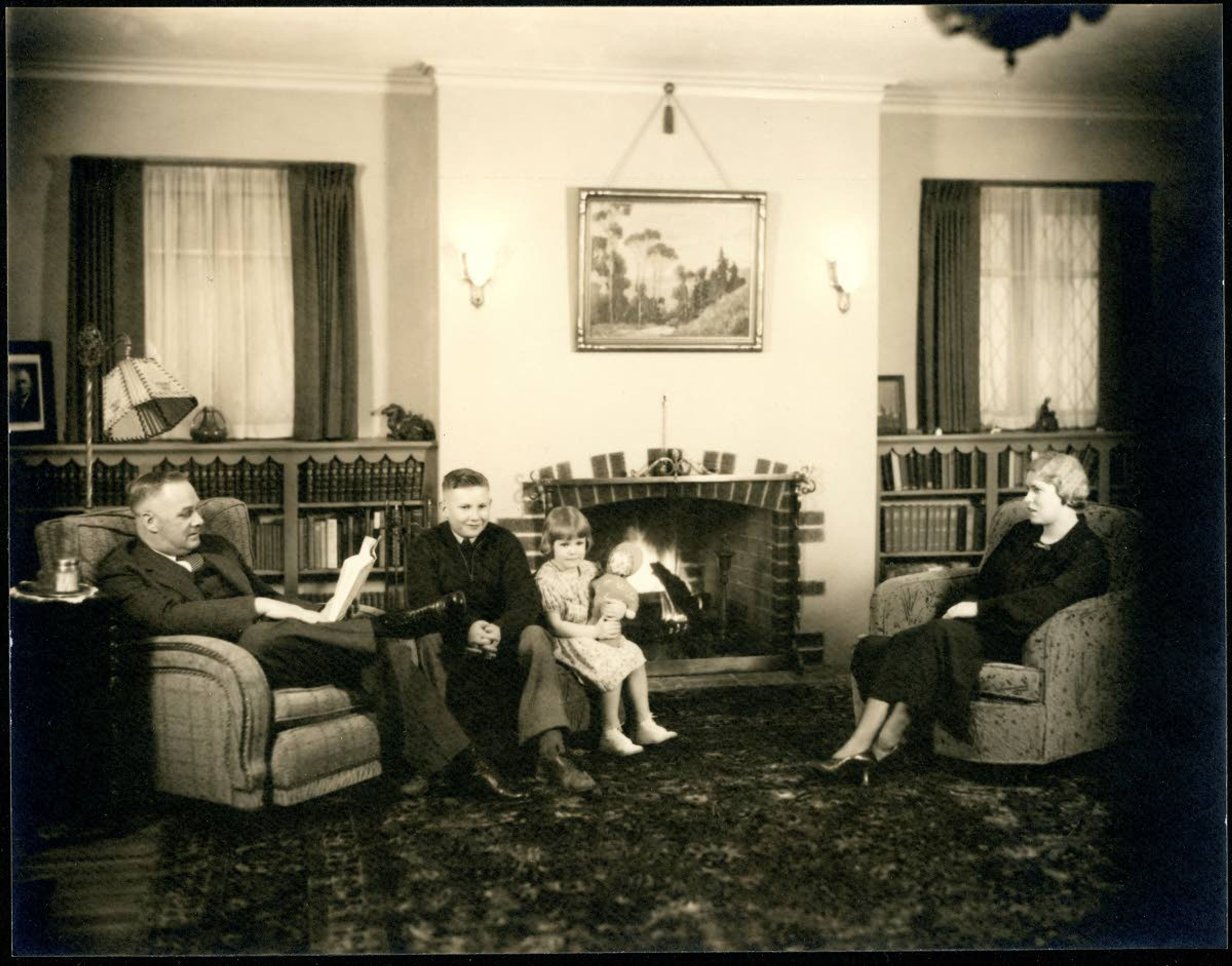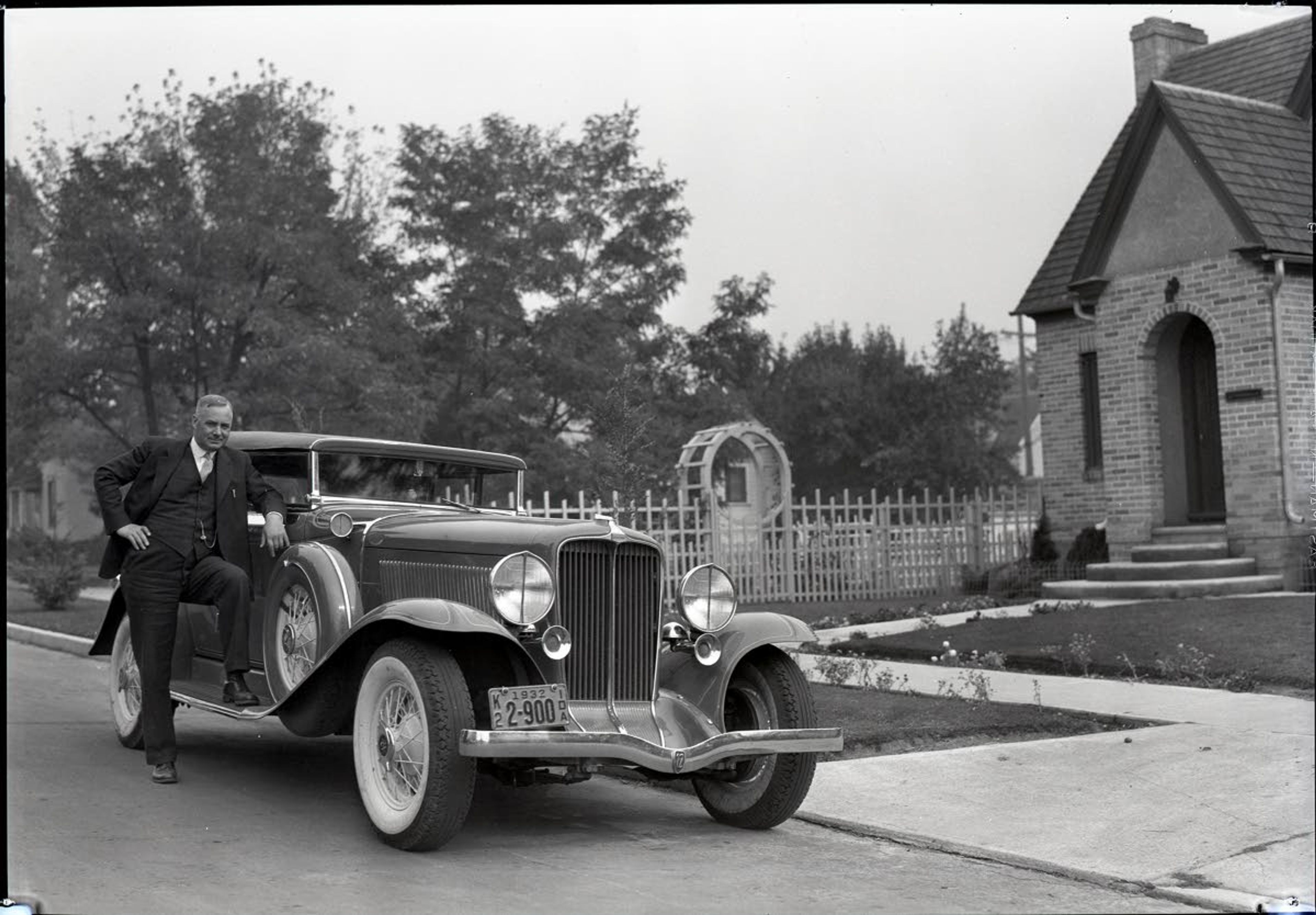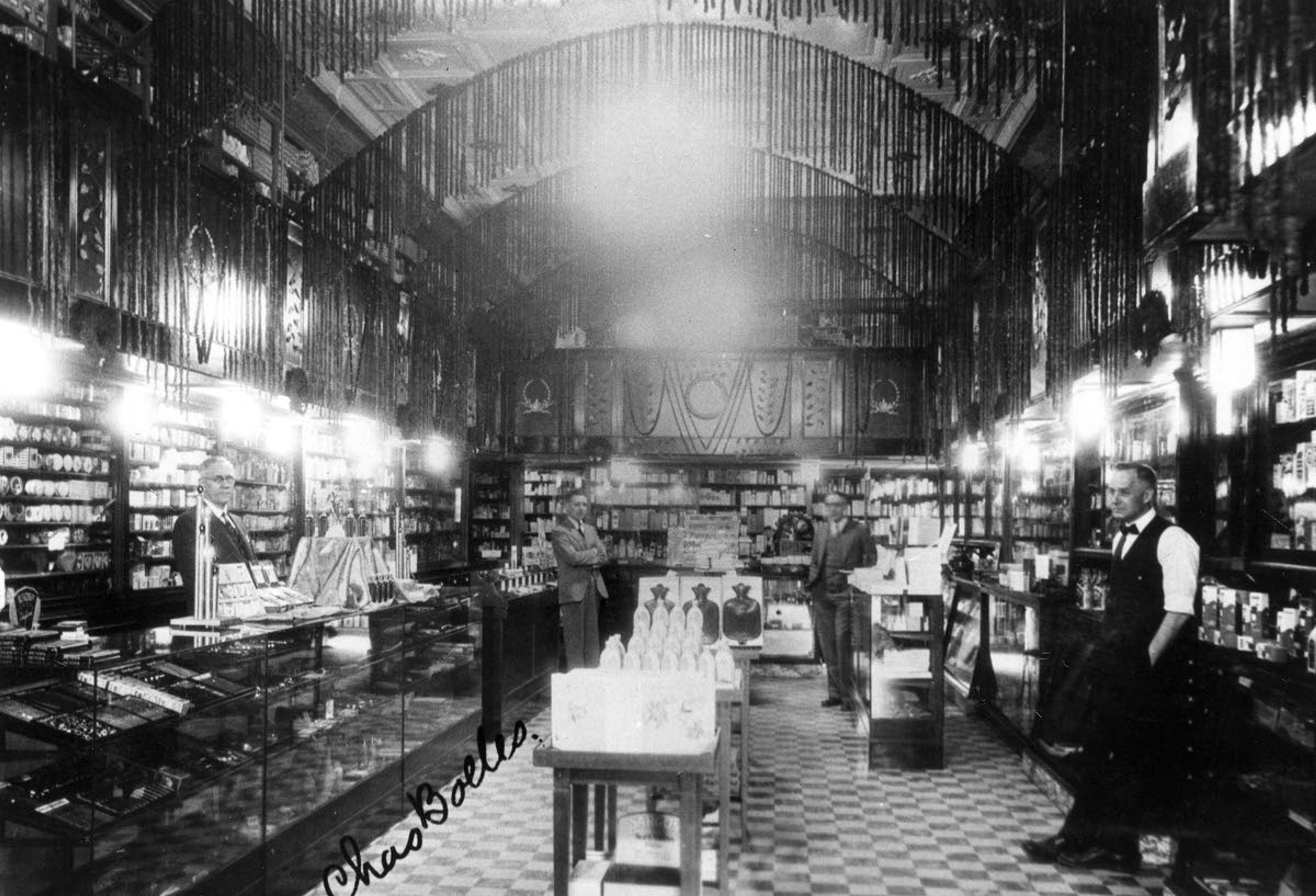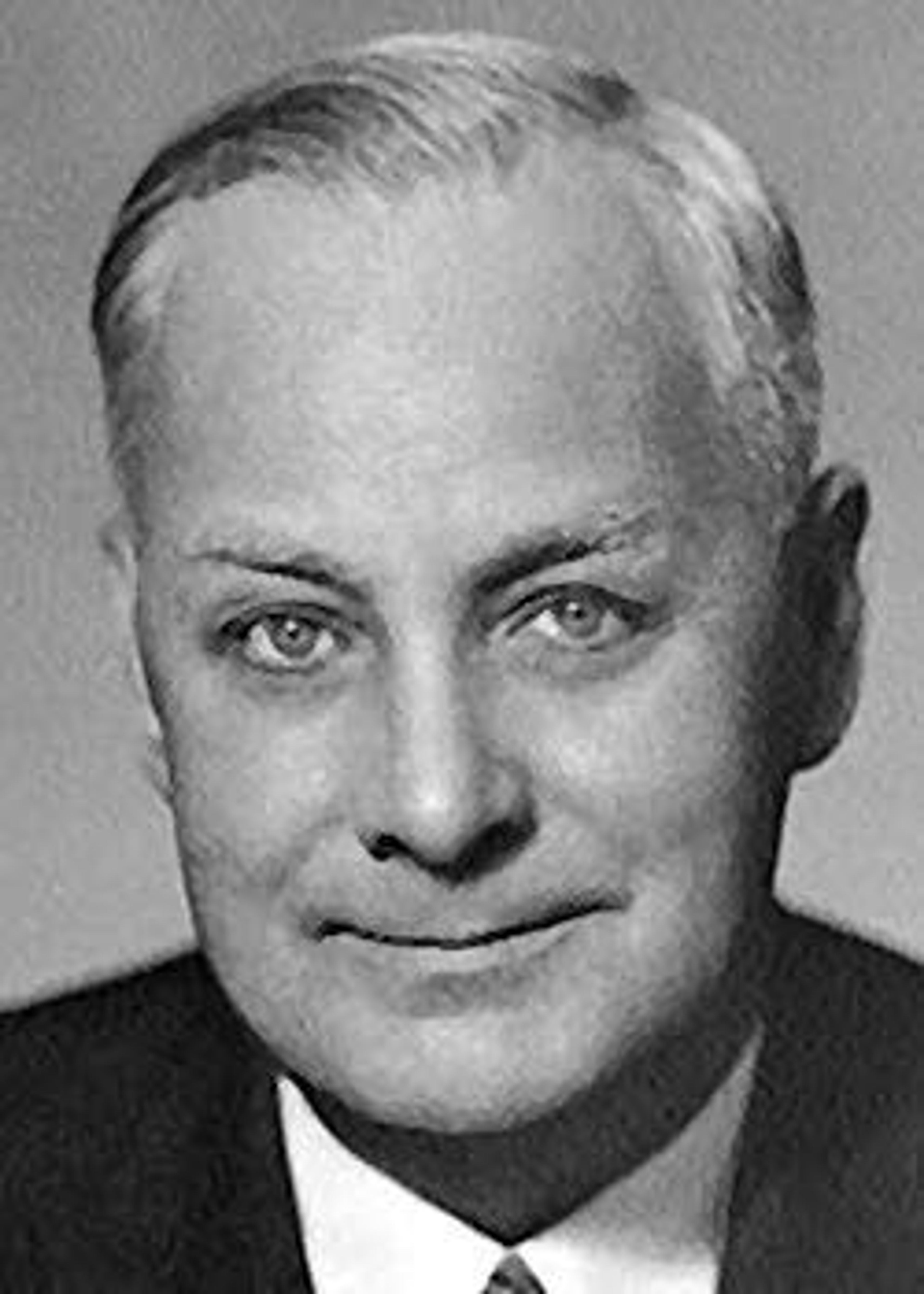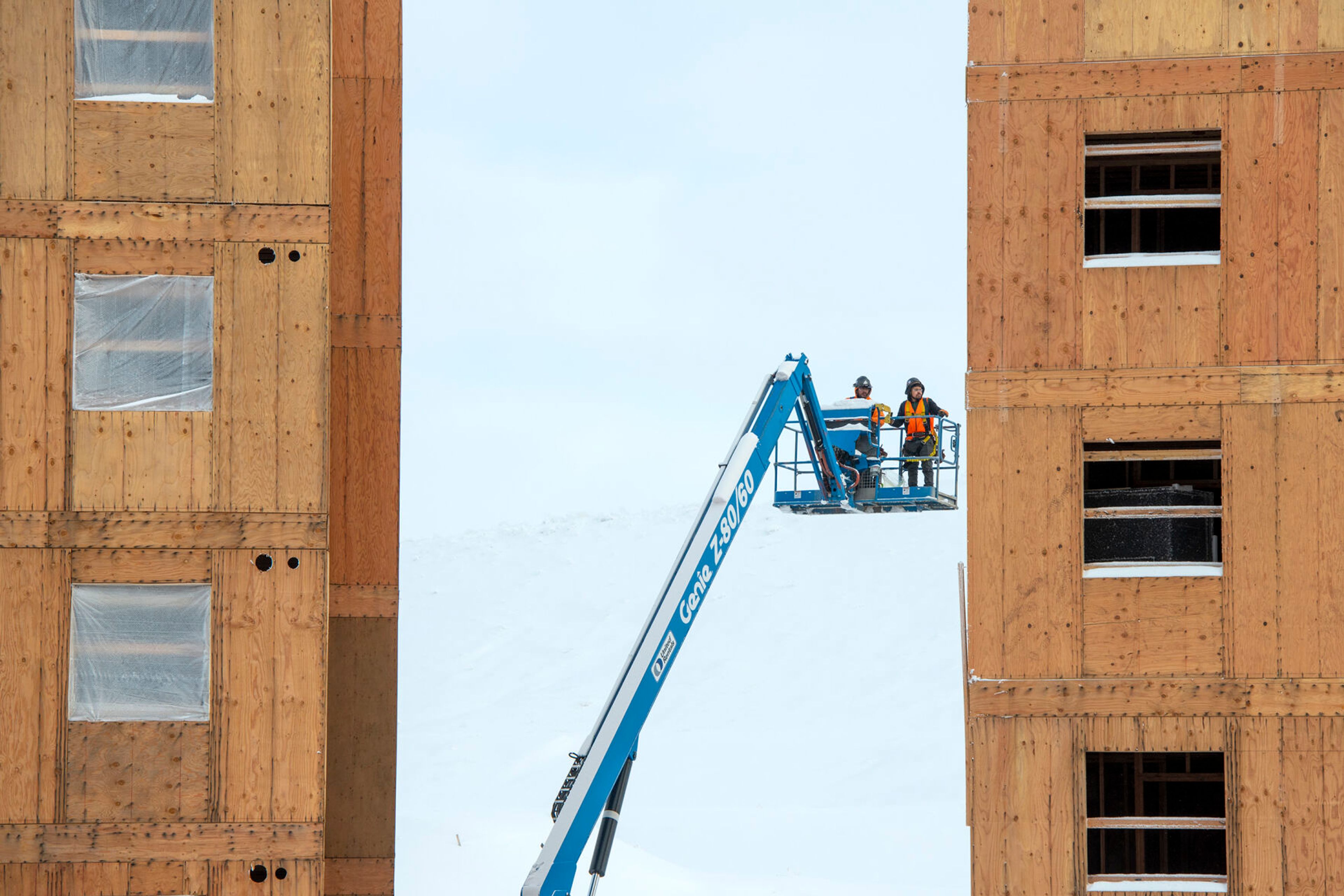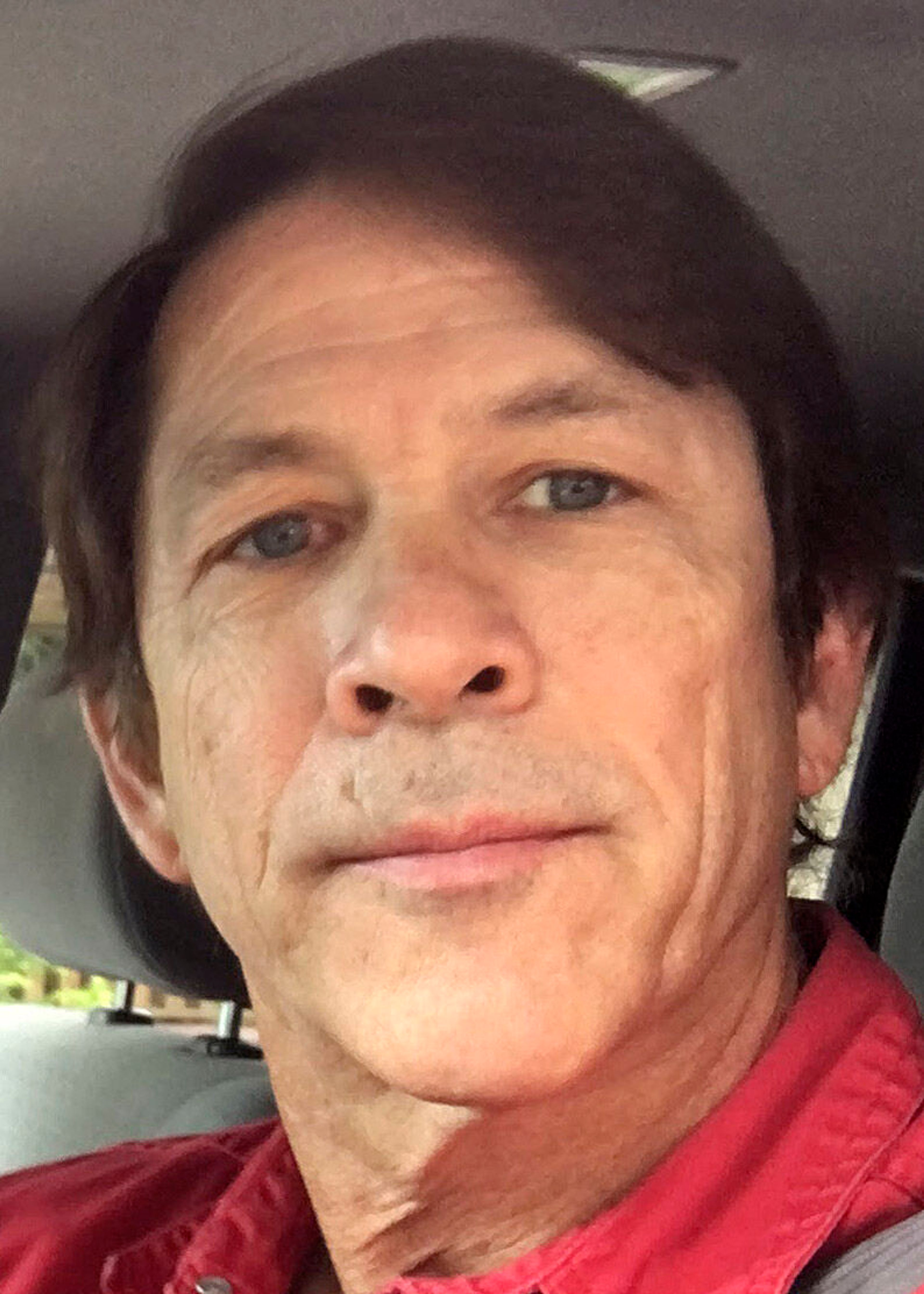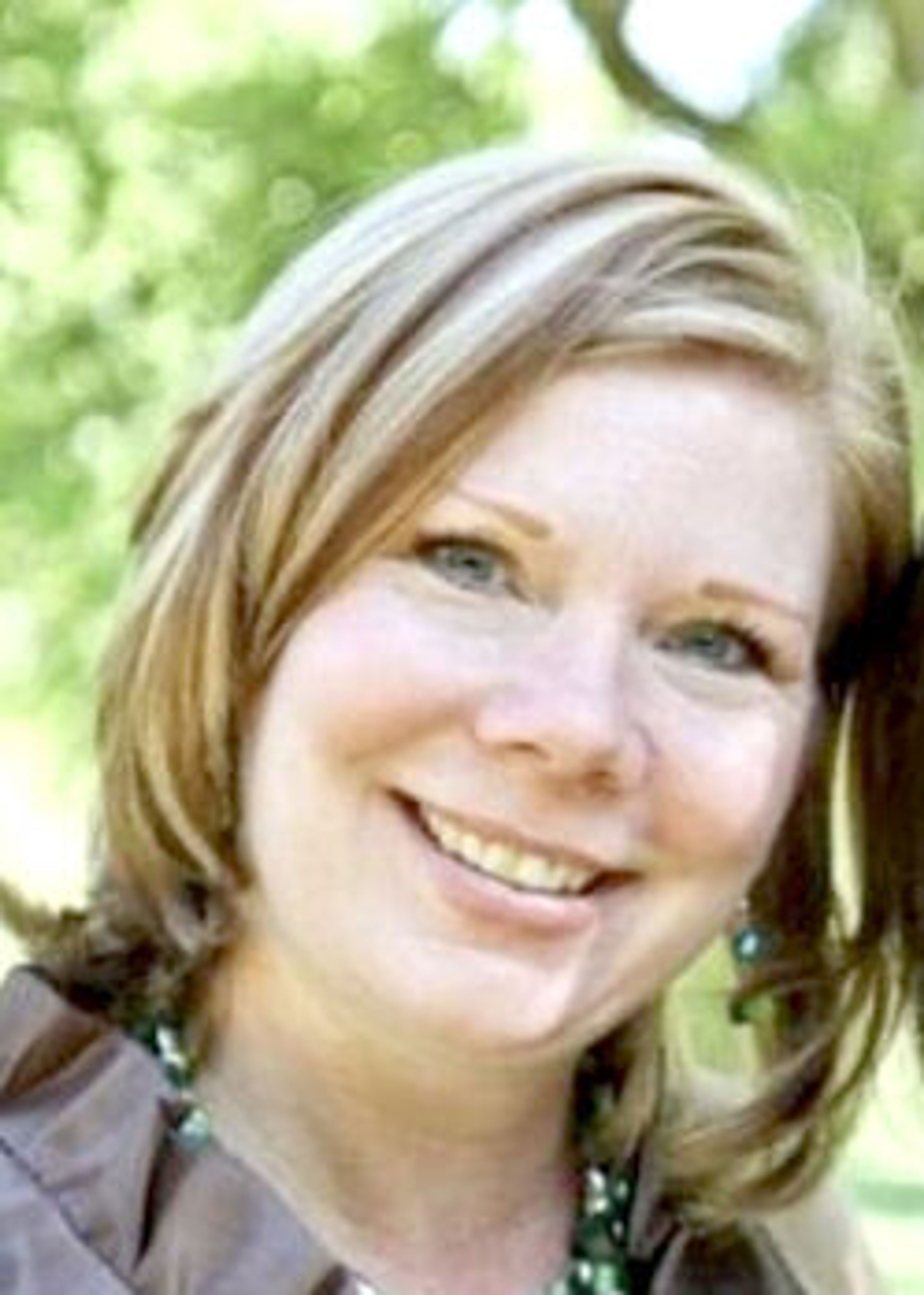Commentary: Idaho’s Mail-Order Messiah
How Frank Robinson and Psychiana mass-marketed hope in the Great Depression
When we began research for our Idaho Public Television documentary on Psychiana, we found a poignant photo in the Ott Collection at the University of Idaho.
The year is 1928 or 1929. The photo shows the Corner Drug Store, at Third and Main streets in Moscow. To the left is Charlie Bolles, the prominent business owner. In the back, two clerks in suits face the camera. To the right is a fourth man, forlorn and in shirtsleeves, who looks away.
That man is Frank B. Robinson.
People who know the outlines of the Psychiana story know what’s ahead for Frank Robinson: luxury cars and furs and famous friends, the iconic photos of the Psychiana buildings and the dozens of employees assembling the thousands of lessons for his mail-order religion.
But the Frank Robinson in that Corner Drug Store picture doesn’t know any of that. What that Frank Robinson knows is a lifetime of setbacks and failure. And when he arrived in Moscow in April 1928, he was starting over yet again — having just lost his Los Angeles home, car and business in a crash that presaged the coming Great Depression.
The story that followed reads like a novel: Within a year or so of that Corner Drug picture, Frank Robinson was one of Moscow’s biggest names, biggest landowners and biggest employers, and Psychiana one of the biggest mail-order businesses in the nation.
Born in England in 1886, in fact, Frank Robinson’s life might have been sketched by Dickens: his angelic mother dies; he’s rejected by his authoritarian preacher father; and he feuds with his violent stepmother. He’s sent across the ocean, where he wanders around Canada and the U.S., looking for a faith and a future. In the 1920s, a vision from God redirects his path — to Moscow, and to a fate that not even Dickens would have conceived.
That fascinating character and journey is what enticed us at Idaho Public Television to take on the Psychiana story for our April 25 documentary, “Idaho’s Mail-Order Messiah.”
Before Idaho Public Television launched its Idaho Experience documentary series, we gathered Idaho writers, historians and other experts to brainstorm the stories our series should tell. One idea that regularly popped up was Frank Robinson and Psychiana.
Looking into the files, we learned that Keith Petersen, the retired Idaho state historian and Latah County Historical Society director, had written a deeply researched memo for a proposed Idaho Public Television documentary in 1981. Petersen, who also wrote the only scholarly history on Robinson, became a key resource for our 2019 show as well.
Our reconnaissance also revealed that although Psychiana’s primary buildings have been demolished, much remains of the 1930s Moscow that Frank Robinson inhabited: the Corner Drug (now the Café Artista) where Robinson started writing his Psychiana lessons; his first office, a rented second-floor room at 116 E. Third; and the state-of-the-art office building (now Turnstone Flats) that Robinson built in 1936 for doctors and lawyers at Third and Jackson. Hauling camera and tripod around snowy historic downtown last winter, it was easy to feel as if we were walking in Frank Robinson’s footsteps.
Reviewing the flamboyant photos of Frank Robinson’s luxury vehicles and fur coats, it’s also easy to see why this self-promoting religious provocateur was such a lightning rod. Documents and Latah County Historical Society oral histories show that for everyone who loved Robinson for his Depression-era jobs and charitable largess, there were just as many who detested his ostentatious lifestyle and his rabidly anti-Bible, anti-Christian teachings.
The other intriguing character that emerged was Moscow itself. The happy life that Frank Robinson had found in Moscow and the happy family home on Howard Street were central to the Psychiana sales pitch, extolled on Frank Robinson’s radio broadcasts. He cited the wealth and success he’d achieved in Idaho as proof that what he called “the God Power” worked – and not in the afterlife, but right here on Earth.
Robinson was not just timely, offering his thousands of students mail-order hope during the Depression. He’d found a fertile place to do it. The Pacific Northwest and northern Idaho are known as the “none zone,” religious historian Gregory Atkins told us. Affiliation with denominations is weak and many people describe themselves as “spiritual, but not religious.” The Northwest was a good place for Robinson to put his unique spin on 1920s New Thought philosophy, which emphasized mind power, positive thinking and a universal life-force.
“There’s just a lot of religious diversity here in the Pacific Northwest, and it allows people to take a little bit of charismatic Christianity, mix that with a little metaphysical religion, and not have a feeling of obligation toward either one,” said Atkins, who is completing his doctorate. at Washington State University. “You’re making your own spirituality, instead of an institutionalized religion. And I think Frank Robinson is a part of that story.”
Robinson’s story may be largely forgotten, but his message and techniques live on — in televangelists and self-help gurus, New Age and prosperity ministries, and direct-mail and mail-order empires like Amazon.
“It’s important to tell the story,” said Latah County Historical Society curator Zach Wnek. “We’re doing history a disservice if we take this story and dismiss it as this cuckoo, eccentric guy who had crazy beliefs, because he did have a big following. And he had an impact on his community. … I think people are just blown away that something this large could happen in a town this small.”
Manny is a writer and producer for Idaho Public Television’s Idaho Experience documentary series.
“Idaho’s Mail-Order Messiah,” airs 8:30 p.m. Thursday on Idaho Public Television.
At a May 2 screening, Moscow-area viewers can see the documentary and participate in a Q&A with the filmmakers and participants, Idaho writer Brandon Schrand and Idaho historian Keith Petersen. The free event is at 7 p.m. at the Kenworthy Performing Arts Centre in Moscow; RSVP recommended. Information: Latah County Historical Society, (208) 882-1004; Idaho Public Television, (800) 543-6868.
